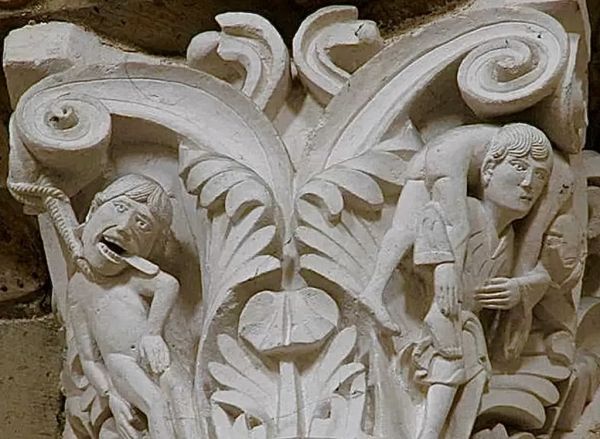«What you want to give me and I will give it to you» (Mt 26:15). So Judas.
Money [thirty silver coins was the price for a slave] counted more than betraying Christ!
Francis gave to the poor what he had; for the rest he felt abhorred, knowing what it often produces.
He wrote several Rules, and experimented with them before laying down the final one.
In one of them he expresses his rejection of money thus:
"Let us be careful, we who have left everything, not to lose the kingdom of heaven for so little. And if we happen to find money, let us pay no more attention to it than to the dust" (FF 1439).
In fact, he transmitted his passion for poverty to the brothers, reminding them that money lends itself well to betrayal.
Once Francis was travelling with one of his companions in Apulia. 'Near Bari, on the road, they found a large bag.
His companion, seeing it swollen and seemingly full of money, invited him to collect it and distribute it to the poor.
But the Poverello refused, seeing in it a deception of the devil: to give alms to others' money, after having stolen it secretly.
Since the friar occasionally returned to the subject, harassing the man of God, the saint agreed to return to the place, but not to do what the friar claimed, but to reveal the devilish deception.
The Sources tell us:
"He returned, in the company of the friar and a young man, whom he met on the road, near the holster [bag] and commanded them to pick it up from the ground.
The friar began, in astonishment, to tremble, because the diabolic prodigy was already present.
Nevertheless he cast out hesitation, making himself strong with the command of holy obedience, and stretched out his hand towards the purse.
And lo and behold: a large snake jumps out, which immediately disappears along with the bag.
'Thus was the deceit of the devil revealed and the fraudulent cunning of the enemy discovered.
'Money,' the Saint then said to his companion, 'for the servants of God, is nothing else, O brother, but a demon and a poisonous serpent' " (FF 1124).
Francis often exhorted his friars not to betray Our Lady Poverty by handing her over for a few coins.
Holy Wednesday (Mt 26:14-25)












